- Home
- Il festival
- Archivio
- PKF 2019
PKF 2019
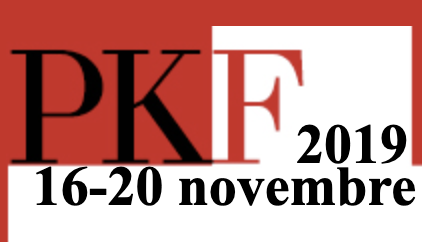 Il Pitigliani Kolno’a Festival – Ebraismo e Israele nel Cinema (PKF), giunto nel 2019 alla XIV edizione, promuove la cinematografia a tema ebraico e la cultura israeliana, ponendosi come polo di promozione del cinema internazionale – in particolare israeliano – su tematiche che riguardano l’ebraismo e Israele.
Il Pitigliani Kolno’a Festival – Ebraismo e Israele nel Cinema (PKF), giunto nel 2019 alla XIV edizione, promuove la cinematografia a tema ebraico e la cultura israeliana, ponendosi come polo di promozione del cinema internazionale – in particolare israeliano – su tematiche che riguardano l’ebraismo e Israele.
Il festival che in quattordici anni, ha fatto conoscere più di 200 titoli inediti in Italia, si rivolge ad un pubblico diversificato: dai bambini agli adulti, dal cinefilo allo spettatore occasionale; ognuno può trovare motivazione e piacere nel frequentare le sale con i film, gli ospiti e le attività che proponiamo.
Al Pitigliani le prime iniziative dedicate al cinema sono nate negli anni ’90: dai pomeriggi in cui le famiglie arrivavano per vedere i film in VHS di una cinematografia allora poco conosciuta come quella israeliana e quella di argomento ebraico, pian piano questo progetto é diventato una rassegna, con qualche evento in piccole sale cinematografiche della città.
L’idea del festival nasce sulla scia del successo della cinematografia israeliana nei festival del mondo e con l’uscita di alcune pellicole in Italia, su cui pochi distributori ebbero il coraggio di scommettere.
Con le proiezioni di documentari, cortometraggi e lungometraggi israeliani e di argomento ebraico il festival si rivolge ad un pubblico generale e non specificatamente ebraico.
Sede del Festival è La casa del Cinema di Roma, dove ogni anno si alternano rassegne e festival dedicati a cinematografie di paesi diversi.
Attraverso il festival si è deciso di aprire la cinematografica israeliana e ebraica al pubblico generale, portando, insieme alle opere le voci, attraverso registi e attori, del cinema israeliano. Si sono creati momenti di confronto aperto con il pubblico, momenti di riflessione che hanno contribuito al dibattito interno, sull’identità e cultura ebraica, ed hanno favorito, all’esterno, il superamento di vecchi e nuovi pregiudizi, offrendo nuovi sguardi sulla storia del popolo ebraico e sulla società dello Stato di Israele.
Negli anni il festival si è affermato sempre più come la realtà più autorevole in Italia dedicata al cinema israeliano ed ebraico. Lo slancio internazionale della manifestazione è confermato dalle presenze di ospiti di primo piano che hanno ottenuto riconoscimenti in tutto il mondo. (I registi Avi Nesher ed Eran Riklis hanno ricevuto il Premio alla Carriera al PKF2018 e PKF2019).
Nel corso della manifestazione si realizzano Panel ai quali sono invitati registi, attori e personaggi del mondo del cinema nazionale ed internazionale. Il PKF2019 ha ospitato l’incontro per la presentazione della prima edizione del progetto MOV(I)E, promosso dal CNA di Roma, finanziato dalla Camera di Commercio di Roma, in collaborazione con Nina International e con la Roma Lazio Film Commission, con l’obiettivo di costruire una rete di collaborazione tra diversi attori dell’industria dell’audiovisivo con particolare attenzione alle co-produzioni internazionali.
Il Festival rivolge la sua attenzione anche alle scolaresche di Roma e provincia a cui vengono riservate apposite matinées. Grazie alla proiezione dei film, si fanno conoscere le diverse realtà ebraiche, della Diaspora e di Israele, affrontando anche il tema della Memoria della Shoah.
Per info 3275890801 – pkf@pitigliani.it
Direzione artistica PKF
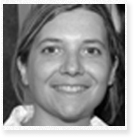 In co-direzione già dalla prima edizione del Roma Kolno’a Festival (2006) e poi ininterrottamente al PKF, Ariela Piattelli è nata a Roma, dove ha studiato al DAMS di RomaTre e si è laureata in Storia e critica del cinema. Oggi è giornalista e collabora con « Il Corriere della Sera ». In passato ha collaborato per alcune testate, tra cui « Il Giornale », l’agenzia Apcom (al desk di New York) e la rivista di cultura ebraica « Shalom » di cui è ancora redattrice. Nel corso degli anni ha approfondito gli studi sul rapporto tra arti figurative ed ebraismo e, nei suoi numerosi viaggi in Israele è venuta a contatto con il cinema israeliano. Dal 1998 è consulente dell’Ambasciata d’Israele in Italia per iniziative culturali e festival cinematografici. E’ stata membro della giuria al Jerusalem Film Festival 2008 (per la sezione “Jewish Experience”) ed è curatrice insieme a Raffaella Spizzichino e Shulim Vogelmann, del Festival Internazionale di Letteratura Ebraica. Nell’ultimo anno ha prodotto alcuni eventi culturali tra Italia e Israele, tra cui il concerto di Idan Raichel Project a Roma (Piazza del Campidoglio, in collaborazione con Zètema) e l’anteprima italiana di “Seven Days” di Ronit e Shlomi Elkabetz, nell’ambito del Festival Internazionale del Film di Roma.
In co-direzione già dalla prima edizione del Roma Kolno’a Festival (2006) e poi ininterrottamente al PKF, Ariela Piattelli è nata a Roma, dove ha studiato al DAMS di RomaTre e si è laureata in Storia e critica del cinema. Oggi è giornalista e collabora con « Il Corriere della Sera ». In passato ha collaborato per alcune testate, tra cui « Il Giornale », l’agenzia Apcom (al desk di New York) e la rivista di cultura ebraica « Shalom » di cui è ancora redattrice. Nel corso degli anni ha approfondito gli studi sul rapporto tra arti figurative ed ebraismo e, nei suoi numerosi viaggi in Israele è venuta a contatto con il cinema israeliano. Dal 1998 è consulente dell’Ambasciata d’Israele in Italia per iniziative culturali e festival cinematografici. E’ stata membro della giuria al Jerusalem Film Festival 2008 (per la sezione “Jewish Experience”) ed è curatrice insieme a Raffaella Spizzichino e Shulim Vogelmann, del Festival Internazionale di Letteratura Ebraica. Nell’ultimo anno ha prodotto alcuni eventi culturali tra Italia e Israele, tra cui il concerto di Idan Raichel Project a Roma (Piazza del Campidoglio, in collaborazione con Zètema) e l’anteprima italiana di “Seven Days” di Ronit e Shlomi Elkabetz, nell’ambito del Festival Internazionale del Film di Roma.
Lirit Mash
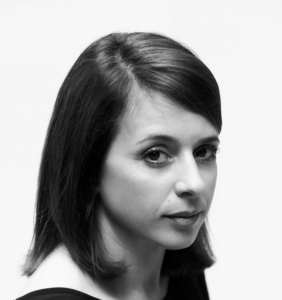 Lirit Mash è attrice e sceneggiatrice. Di origine argentina, è nata e cresciuta in Israele (Kibbutz Gazit). Ha imparato a suonare il violino e partecipato alla “Youth Symphonic Orchestra” dei membri dei kibbutzim. Vissuta per tre anni a Roma, tornata in Israele si è diplomata in Arte alla “Alon High School for the Arts”. Nell’esercito, ha lavorato come istruttore sportivo nel “College Interdisciplinary for Command and Staff”. Nel 1997 si è diplomata come attrice presso la “Beit Zvi High School for the Performing Arts”. Già durante il terzo anno degli studi, ha girato per una serie televisiva “Merhav Yarkon” (ambientato in una stazione di polizia). Dopo aver completato gli studi, ha svolto un ruolo di primo piano al teatro di Haifa, uno dei quali: “Ghetto” diretto da Joshua Sobol. Negli ultimi 20 anni Lirit ha recitato in teatro, cinema e televisione e tra i suoi ruoli più importanti: “Zinzana” (serie televisiva girata in una vera prigione nel 1999), “Saturdays and Holidays” (tre stagioni di una serie di successo sulle relazioni di coppia, 2000-2003). “This Night” (2006-2013) dell’Orna Porat Theatre, sulla comunità marocchina fuggita in Israele negli anni ’50. “Yellow Peppers” serie venduta alla BBC (2013), “Milk and Honey” venduta a Channel 4 (2015) e molti spot fra i quali per l’IKEA, la Tnuva e la campagna “Violence Against Women”. Attualmente Lirit è protagonista in un commedia originale: “Daddy’s Fathers” insieme all’attore veterano israeliano Uri Gavriel. Ha insegnato “Dramma e interpretazione e preparato attori per audizioni. Nell’ultimo anno, Lirit ha scritto il suo primo copione per una co-produzione israelo-argentina e un libro ispirato alla sua infanzia in Kibbutz.
Lirit Mash è attrice e sceneggiatrice. Di origine argentina, è nata e cresciuta in Israele (Kibbutz Gazit). Ha imparato a suonare il violino e partecipato alla “Youth Symphonic Orchestra” dei membri dei kibbutzim. Vissuta per tre anni a Roma, tornata in Israele si è diplomata in Arte alla “Alon High School for the Arts”. Nell’esercito, ha lavorato come istruttore sportivo nel “College Interdisciplinary for Command and Staff”. Nel 1997 si è diplomata come attrice presso la “Beit Zvi High School for the Performing Arts”. Già durante il terzo anno degli studi, ha girato per una serie televisiva “Merhav Yarkon” (ambientato in una stazione di polizia). Dopo aver completato gli studi, ha svolto un ruolo di primo piano al teatro di Haifa, uno dei quali: “Ghetto” diretto da Joshua Sobol. Negli ultimi 20 anni Lirit ha recitato in teatro, cinema e televisione e tra i suoi ruoli più importanti: “Zinzana” (serie televisiva girata in una vera prigione nel 1999), “Saturdays and Holidays” (tre stagioni di una serie di successo sulle relazioni di coppia, 2000-2003). “This Night” (2006-2013) dell’Orna Porat Theatre, sulla comunità marocchina fuggita in Israele negli anni ’50. “Yellow Peppers” serie venduta alla BBC (2013), “Milk and Honey” venduta a Channel 4 (2015) e molti spot fra i quali per l’IKEA, la Tnuva e la campagna “Violence Against Women”. Attualmente Lirit è protagonista in un commedia originale: “Daddy’s Fathers” insieme all’attore veterano israeliano Uri Gavriel. Ha insegnato “Dramma e interpretazione e preparato attori per audizioni. Nell’ultimo anno, Lirit ha scritto il suo primo copione per una co-produzione israelo-argentina e un libro ispirato alla sua infanzia in Kibbutz.Ospiti PKF 2019
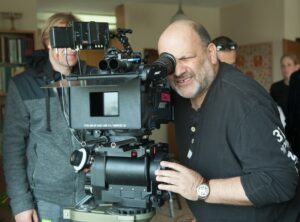 Eran Riklis
Eran Riklis
 Yoav Abramovich
Yoav Abramovich
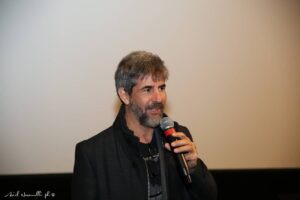 Nir Bergman
Nir Bergman
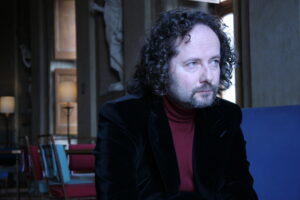 Marco Bertozzi
Marco Bertozzi
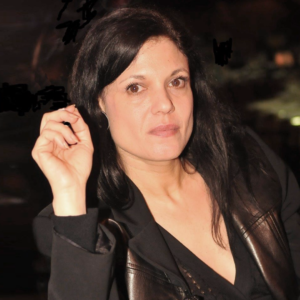 Osnat Bukofzer
Osnat Bukofzer
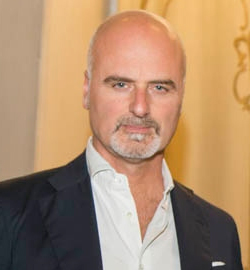 Gianluca Curti
Gianluca Curti
Figlio dell’attrice Leonora Ruffo e del produttore Ermanno Curti, inizia l’attività di produttore vincendo nel 1991 il premio del pubblico con “Buck ai Confini del Cielo” al Giffoni Film Festival.
La sua carriera è costellata di successi ottenuti in vari festival per l’opera di conservazione e restauro di molti capolavori del cinema mondiale, quali la pubblicazione per la Raro Video di tutti i lavori di Andy Warhol regista.
Fra i film da lui prodotti si ricordano, Napoli, Napoli, Napoli di Abel Ferrara, Ingannevole è il cuore più di ogni cosa di Asia Argento, H2Odiodi Alex Infascelli, La rabbia di Pasolini di Giuseppe Bertolucci, Fortapàsc di Marco Risi, Tatanka di Giuseppe Gagliardi, LaBas/Educazione criminale di Guido Lombardi, vincitore della settimana della critica e del Leone d’oro del futuro a Venezia nel 2011 e molti altri.
È presidente della Minerva Pictures e del Gruppo editoriale Minerva/RaroVideo e, dal 2017, di CNA Cinema e Audiovisivo.
Al PKF 2019 partecipa al PKF Panel – MOV(I)E Direzione Israele
Son of the actress Leonora Ruffo and the producer Ermanno Curti, he started the activity of the producer winning the public prize in 1991 with “Buck ai Confini del Cielo” at the Giffoni Film Festival.
His career is punctuated by successes achieved in various festivals for the conservation and restoration of many masterpieces of world cinema, such as the publication for the Rare Video of all the works of Andy Warhol director.
Among the films produced by him we rememberNapoli, Napoli, Napoliby Abel Ferrara, Ingannevole è il cuore più di ogni cosa by Asia Argento,H2Odioby Alex Infascelli,La rabbia di Pasolini di Giuseppe Bertolucci,Fortapàscby Marco Risi,Tatankaby Giuseppe Gagliardi andLaBas/Educazione criminaleby Guido Lombardi, winner of the critics’ week and of the Golden Lion of the future in Venice in 2011 and many others.
He is president of Minerva Pictures and of the Minerva / RaroVideo Publishing Group and, since 2017, of CNA Cinema e Audiovisivo.
At the PKF 2019 takes part in PKF Panel – MOV(I)E Direzione Israele
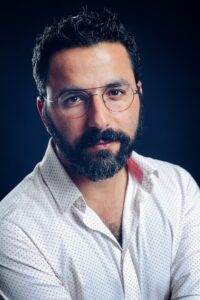 Eliran Malka
Eliran Malka
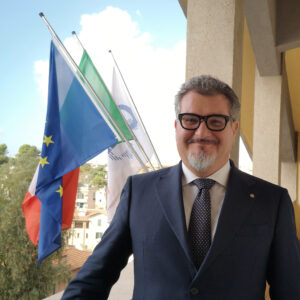 Stefano Di Niola
Stefano Di Niola
Stefano Di Niola nasce a Roma nel 1970 dove tuttora vive. Ha frequentato la facoltà di Scienze Politiche all’Università La Sapienza di Roma. Lavora in CNA Nazionale dal 1991 occupandosi prima di progetti transnazionali e diventando poi, Responsabile di Mercato del Lavoro, Politiche Formative e Contrattuali. Nel 2014 è il più giovane Responsabile del Dipartimento Relazioni Sindacali e il più giovane Presidente dei Fondi Interprofessionali italiani, divenendo poi Presidente di Fondartigianato. Da giugno 2018 è Segretario della CNA di Roma.
Stefano Di Niola was born in Rome in 1970 where he still lives. He attended the Faculty of Political Science at the Sapienza University of Rome. He has worked in theCNA Nazionalesince 1991, dealing first with transnational projects and then becoming Head of the Labor Market, Training Policies and Contracts. In 2014 he is the youngest Manager of the Trade Union Department and the youngest President of the Italian Interprofessional Funds, later becoming President ofFondartigianato. From June 2018 he is Secretary of theCNA of Rome.
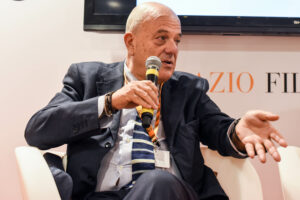 Luciano Sovena
Luciano Sovena
Luciano Sovena, Presidente della Roma Lazio Film Commission, è un avvocato specializzato nel settore dell’intrattenimento, nella comunicazione e nel diritto d’autore. È stato CEO dell’Istituto Luce Spa– successivamente Cinecittà Luce Spa– dal 2003 al 2011. Durante questo periodo, nelle vesti di CEO, ha preso parte alla produzione e distribuzione di diversi film, fra cui Il Mercante di Venezia di Michael Radford, con Al Pacino, e2046, di Wong Kar Wai. Ha anche scoperto nuovi talenti e sostenuto opere prime italiane, fra cui Private di Saverio Costanzo (che ha vinto il Festival di Locarno);Corpo Celeste di Alice Rohrwacher (che è stato presentato sia a Cannes che ai Nastri D’Argento),Le quattro volte di Michelangelo Frammartino (che ha vinto il Quinzaine des Realisateurs al Festival di Cannes). Come Presidente della Roma Lazio Film Commission è attivo nel sostegno alle co-produzioni, così come alla promozione di accordi di co-produzione tra Italia e paesi stranieri. Sovena ha fondato il primo Centro Euromediterraneo di Cinematografia dell’Audiovisivo in Marocco, al cui interno è stata avviata la School of Arts and Cinema Professions. Ha, inoltre, promosso in Argentina un accordo di sviluppo per co-produzioni Italia-Argentina. È Professore di “Teoria e tecnica della produzione cinematografica e televisiva” presso l’Università Suor Orsola Benincasa di Napoli. È esperto nel campo dei regolamenti, in particolare nelle relazioni finanziarie fra produzione e distribuzione cinematografica.
Luciano Sovena, President of theRoma Lazio Film Commission, is a lawyer specializing in the entertainment, communication and copyright sectors. He was Managing Director of Istituto Luce Spa – registered with Cinecittà Luce Spa – from 2003 to 2011. During this period, in the role of CEO, he took part in the production and distribution of several films, includingIl Mercante di Veneziaby Michael Radford with Al Pacino, and2046, by Wong Kar Wai. He also discovered new talents and supported Italian first works, includingPrivateby Saverio Costanzo (who won the Locarno Festival);Corpo Celesteby Alice Rohrwacher (which was presented both at Cannes and at the Nastri d’Argento),Le quattro volteby Michelangelo Frammartino (who won the Quinzaine des Realisateurs at the Cannes Film Festival). As President of theRoma Lazio Film Commissionhe is active in supporting coproductions, as well as promoting co-production agreements between Italy and foreign countries. Sovena founded the firstEuromediterranean Audiovisual Cinematography Center in Morocco, where theSchool of Arts and Cinema Professionswas launched. It has also promoted a development agreement in Argentina for the Italy-Argentina co-productions. He is Professor of “Theory and Technique of Film and Television Production” at the Suor Orsola Benincasa University in Naples. He is an expert in the field of payments, in particular in the financial relations between film production and distribution.
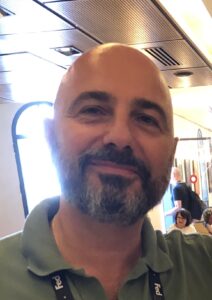 Andrea Stucovitz
Andrea Stucovitz
Andrea Stucovitz, vanta una lunga esperienza nell’industria cinematografica, iniziando a lavorare per SC Entertainment(già Cinemavault) e, nel 1992, dopo alcuni anni di esperienza nella vendita e nella produzione internazionale, ha fondato nel 2006Partner Media Investment, una società indipendente con l’obiettivo di produrre film di qualità, dai lungometraggi ai documentari.
La sua formazione comprende studi di Architettura presso l’Università di Roma. È inoltre membro della EFA European Film Academy, EPC European Production Companiese Anica.
Andrea Stucovitz, has a long time experience in the cinema industry, he started working forSC Entertainment(already Cinemavault) and, in the 1992, after some years of experience in the international sales and production, he founded in 2006Partner Media Investment,an independent company with the aim to produce quality films, from features to documentaries.
His education includes studies of architecture at the University of Rome he is a member of EFA European Film Academy, EPC European Production Companiesand Anica.
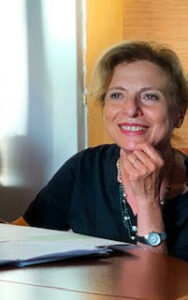 Maria Giuseppina Troccoli
Maria Giuseppina Troccoli
Maria Giuseppina Troccoli ha diretto per quattordici anni il Dipartimento Cinema e Audiovisivo del Ministero per i Beni, per le Attività Culturali e il Turismo. Di recente si è occupata dell’implementazione delle attività riguardanti le nuove misure di sostegno statali previste dalla legge numero 220/2016 sulla Disciplina del Cinema e dell’Audiovisivo, che riguarda nello specifico i sistemi selettivi per la produzione di film e opere audiovisive, incentivi fiscali, distribuzione e rassegne. E’ inoltre membro dei comitati di valutazione di tutti gli esistenti Fondi Bilaterali di Co-sviluppo (Francia, Germania, Cile, Portogallo, Paesi Baltici, Tunisia) ed è il rappresentante italiano dell’Ibermedia Board dove ha condotto molte delegazioni italiane all’estero.
Nel contesto delle sue attività internazionali, Maria Giuseppina Troccoli si confronta costantemente con le sue controparti straniere allo scopo di creare e rinnovare accordi di coproduzione.
Maria Giuseppina Troccoli has directed the Cinema and Audiovisual Department ofMinistero per iBeni, per le Attività Culturali e il Turismofor fourteen years.
Recently she was involved in the implementation of the activities concerning the new state support measures envisaged by law number 220/2016 on the Cinema and Audiovisual Discipline, which specifically concerns selective systems for the production of films and audiovisual works, incentives tax, distribution and reviews. She is also a member of the evaluation committees of all existing Bilateral Co-development Funds (France, Germany, Chile, Portugal, Baltic States, Tunisia) and is the Italian representative of the Ibermedia Board where he led many Italian delegations abroad .
In the context of her international activities, Maria Giuseppina Troccoli constantly confronts herself with her foreign counterparts in order to create and renew co-production agreements.
Percorsi Ebraici
KOSHER BEACH – HaHof HaNifrad
“Kosher Beach” è una spiaggia recintata e appartata di Tel Aviv, con differenti giorni dedicati a donne e uomini religiosi, per poter fare il bagno separatamente. Solo una staccionata di legno li separa dalla spiaggia gay. Il “Brave Bunch”, una comunità ortodossa femminile segreta, considera quella spiaggia un rifugio sicuro, lontano dai problemi sociali e familiari, un paradiso privato e libero dove possono essere se stesse. Quando i rabbini cercano di chiudere la spiaggia devono decidere: arrendersi o combattere?
Il film ha partecipato al Docaviv Festival 2019.
“Kosher Beach” is a gated and secluded beach in Tel-Aviv with dedicated days for women and men to bathe separately. Only a wooden fence separates them and the gay beach. The “Brave Bunch”, a secret female orthodox sisterhood, arrives to what is a source of sanity for them. They consider it a safe haven away from social and family problems, their own private and free heaven where they can be themselves. When the Rabbis try to close the beach they have to decide, give in or fight?
The film partecipated atDocaviv Festival 2019.
Anno: 2019
Nazione: Israele, USA
Genere: Documentario
Durata: 62
Lingua: Ebraico
Regia: Karin Kainer
Sceneggiatura: Karin Kainer
Montaggio: Yael Leibovitz, Arik Lahav Leibovich
Fotografia: Karin Kainer, Einav Goodman Giat, Ynon Slutzky, Roee Farag, Tal Mor
Musica: Erez Russo
Produzione: Doc.Films, Karin Kainer Films
THE UNORTHODOX – Habilti Rishmeim
Quando la figlia di Yakov Cohen viene espulsa da scuola per ragioni etniche, lui decide di reagire. E’ il 1983 e Yakov, un tipografo che vive a Gerusalemme, è solo uno come tanti. Non ha le giuste conoscenze nè il denaro, ma una grande forza di volontà, che permette sia a lui che agli altri ebrei sefarditi nelle sue stesse condizioni di alzare la testa.
Yakov chiama a raccolta due amici, e insieme decidono di fondare il primo gruppo politico di ebrei sefarditi di Gerusalemme: non i classici tipi in giacca e cravatta, piuttosto quelli che si costruiscono la propria strada con umiltà partendo dal basso, dotati di uno spiccato senso dell’umorismo e di tanta voglia di riscatto. Il progetto dei tre amici non segue un preciso piano politico, ma il loro amore per il prossimo e la tenacia che li contraddistingue, li porta a realizzare una delle più sorprendenti campagne elettorali che il Paese abbia mai conosciuto. Il film affronta il tema del “gioco politico” della religione e pone l’accento sulla convivenza e sulla necessità di rispetto reciproco tra persone provenienti da contesti culturali diversi. Il film si è aggiudicato all’Israeli Film Academy il premio per la miglior regia e la miglior sceneggiatura.
When Yakov Cohen’s daughter is expelled from school for ethnic reasons, he decides to fight back. It’s 1983 and Yakov, a printer in Jerusalem, is just a regular guy. He has no knowledge, no money, no connections and no political experience. But he does have the will and the passion to take action, and a belief that he and other Sephardic Jews should be able to hold their heads up high. Yakov brings two friends along and together they start the first ethnic political group in Jerusalem, with an operation characteristic of the people they represent: not the suit- wearing types, but rather the people working their way up from the bottom. Their operation is informal, full of love for their fellow man, animated by a great sense of humor and a whole lot of rage.
The film is raising questions about the real core of thepolitical game about the issue of religion and emphasizes coexistence and the need for mutual respect betweenpeople from different backgrounds.
The Unorthodoxparticipated in the latest edition of the Israel Film Academy winning for best director and best screenplay.
Anno: 2018
Nazione: Israele
Genere: Lungometraggio
Durata: 99
Lingua: Ebraico
Regia: Eliran Malka
Sceneggiatura: Eliran Malka
Montaggio: Arik Lahav-Leibovich
Fotografia: Yaron Scharf
Musica: Ophir Leibovitch
Cast: Shuli Rand, Yaacov Cohen, Golan Azulai, Yoav Levi, Or Lumbrozo, Tzahi Grad, Yigal Naor, Shifi Aloni
Produzione: Dori Media Paran, Tel Aviv
13, A LUDODRAMA ABOUT WALTER BENJAMIN – 13, Un ludodrame sur Walter Benjamin
Il documentario è diviso in tredici piccoli capitoli, che raccontano gli anni di esilio del filosofo ebreo Walter Benjamin a Parigi tra il 1933 e il 1940.
Non ci sono interviste, il fil rouge che guida il progetto è principalmente il pensiero di Benjamin sotto forma di narrazione e di testo sullo schermo. La storia è costruita su tre elementi: scene girate nell’Europa dei giorni nostri, materiale d’archivio e animazioni di vari stili.
E’ un tributo “sensoriale”, che dà spazio alle intuizioni folgoranti del poeta-filosofo.
It’s a documentary essay on the German philosopher. Thefilm is divided into 13 small chapters which recount Ben- jamin’s years of exile in Paris between 1933 and 1940. Afilm without interviews, it is guided mainly by Benjamin’sthought in the form of narration and on-screen text. The story is built with three elements: scenes shot in contempo- rary Europe, archival footage, and animations of various styles.
It’s a sensorial tribute that gives room to the fulgurating intuitions of the poet-philosopher.
Anno: 2017
Nazione: Canada
Genere: Documentario
Durata: 79
Lingua: Ebraico
Regia: Carlos Ferrand Zavala
Sceneggiatura: Carlos Ferrand, Thomas Sieber Satinsky
Montaggio: Nicolas Renaud
Fotografia: Carlos Ferrand Zavala
Musica: Jacques Lederlin
Produzione: Les Films de l’Autre
Sguardo sul nuovo cinema israeliano
THE DIVE – Hatzilia
È giovedì e la seconda guerra sul fronte libanese infuria. Yoav, 27 anni, ex ufficiale affetto da insonnia da stress post-traumatico, ritorna dopo un anno di totale assenza nel suo kibbutz nativo, per la sepoltura di suo padre, morto un anno prima. Al suo arrivo scopre che suo fratello minore Avishai, 19 anni, un soldato dell’esercito in procinto di entrare sul fronte libanese, mostra allarmanti segni di panico al punto che chiede a Yoav di aiutarlo a scappare. Itai, 31 anni, il fratello maggiore, decide di preparare Avishai alla guerra con una serie di esercizi di allenamento intensivo. A malincuore, Yoav si unisce all’addestramento di suo fratello e si sente trascinato nel mondo violento di suo padre dal quale ha sempre cercato di fuggire. Mentre l’ora della partenza si avvicina sempre più, l’allenamento diventa ancora più violento fino ad andare fuori controllo. Nell’agosto 2018, il film è stato proiettato nell’ambito del 71° Festival di Locarno, ed ha vinto il Premio Boccalino della critica svizzera, nonché il Premio della giuria Junior per il miglior film degli attuali registi. Al Jerusalem Film Festival 2018 ha vinto come miglior lungo-metraggio e miglior film in anteprima.
It’s Thursday and the second Lebanon war is raging. Yoav, 27, a former officer and insomniac suffering from posttraumatic stress from war, returns after a year of complete absence, to his native northern kibbutz, for the burial of his father who died a year earlier and donated his body to science. Upon his arrival he discovers that his younger brother, Avishai, 19, a soldier in the army, is due to enter the Lebanese front on Saturday but he is showing alarming signs of panic and even asks Yoav to help him run off. Itai, 31, the oldest brother decides to prepare Avishai to war with a series of intensive training exercises. Reluctantly, Yoav joins his brother’s training and finds himself drawn back to his father’s legacy and the violent world he tried to escape from. As the clock towards the end of the weekend approaches, the training becomes more violent until finally, after a tragic turn, it spins out of control.
Anno: 2018
Nazione: Israele
Genere: Lungometraggio
Durata: 91
Lingua: Ebraico
Regia: Yona Rozenkier
Sceneggiatura: Yona Rozenkier
Montaggio: Or Lee-Tal
Fotografia: Oded Ashkenazi
Musica: Baruch Ben-Itzhak
Cast: Yoel Rozenkier, Micha Rozenkier , Yona Rozenkier ,Claudia Dulitchi Miki Marmor, Daniel Sabag ,Shmuel Edelman
Produzione: Gaudeamus Productions
Douze Points è un’accattivante commedia con la suspence del thriller che, tra operazioni dell’ISIS e agenti del Mossad, racconta la storia dell’amicizia tra due giovani musulmani, Rasoul Abu-Marzuk e Tarik Jihad, cresciuti entrambi a Parigi. Tarik è un cantante, noto con il nome d’arte di TJ, che decide di partecipare ad un contest musicale internazionale, rappresentando la Francia. Nel frattempo le cellule dell’ISIS lo costringono a progettare un attacco a Tel Aviv…
Douze Points it’s a comedy-thriller created by mixing ISIS operatives, tough Mossad agents and a unique re- lationship between two young Muslim guys, Rasoul Abu-Marzuk e Tarik Jihad, childhood best friends who grew up together. Tarik is a singer called TJ, who represents France in an international song contest, while being extorted by Isis to carry out an attack in Tel Aviv…
Anno: 2019
Nazione: Israele
Genere: Serie TV
Durata: 90
Lingua: Ebraico, Francese, Inglese
Regia: Danny Sirkin
Sceneggiatura: Yoav Hebel & Asaf Zelicovici
Montaggio: Ronnie Klimovski
Fotografia: Ofer Harari
Musica: Uri Kalian
Cast: Adel Djemai, Zach Fakiel, Mali Levi, Roi Miller, Yoav Levi, Itzik Cohen, Tal Friedman, Shani Klein.
Produzione: Firma Films,United King.
Poco prima della sua scomparsa, Golda Meir è stata intervistata per la televisione israeliana. Dopo la fine delle riprese, le telecamere hanno continuato a girare, riuscendo a registrare un discorso intimo con la prima e unica donna che abbia mai governato Israele. Tra una sigaretta e l’altra, Golda ha parlato liberamente, raccontando la sua esperienza da Primo Ministro: cinque anni turbolenti che le hanno assicurato un posto nella storia, guadagnato scontando personalmente un caro prezzo. Basato su un’intervista inedita a Golda Meir, il documentario si snoda tra testimonianze di sostenitori e oppositori, e rari filmati d’archivio. Un film che intende raccontare la gloriosa ma anche travagliata storia che ha caratterizzato la sua vita – dalla sorprendente ascesa al potere, che l’ha portata a diventare “regina del popolo ebraico”, fino alla morte.
Il film ha partecipato all’ultima edizione del Festival Docaviv.
Shortly before her passing, Golda Meir was inter- viewed for the Israeli television. After the shooting ended the cameras kept rolling, recording an intimate talk with the first and only woman to ever rule Israel. As she lit one cigarette off the other, Golda spoke freely, pleading her case for her term as prime minister – five turbulent years that secured her place in history, at a high personal cost. Based on that never-seen-before talk, testimonies of supporters and opponents and rare archival footage, “GOLDA” tells the story of Meir’s dramatic premiership – from her surprising rise to power and iconic international stature as “queen of the Jewish people”, to her death.
The film was in competition in the official sectionof the Docaviv Festival.
Anno: 2019
Nazione: Israele, Germania
Genere: Documentario
Durata: 88
Lingua: Ebraico
Regia: Sagi Bornstein, Udi Nir, Shani Rozanes
Sceneggiatura: Shani Rozanes, Sagi Bornstein, Udi Nir
Montaggio: Sagi Bornstein
Fotografia: Eitan Hatuka
Musica: Adam Ben Ezra
Produzione: UdiVsagi Production, Gebrueder Beetz Filmproduktion
MRS. G. – Gveret G
Il film racconta la storia di Lea Gottlieb, la leggendaria designer, fondatrice e proprietaria dell’impero dei costumi da bagno Gottex. Lea Gottlieb è stata una donna piena di contraddizioni con una forza vitale incredibile, che è riuscita a ricominciare nonostante le difficoltà che ha dovuto affrontare. Sopravvissuta alla Shoah, è riuscita ad aprire una piccola fabbrica in Israele, il primo passo verso quel successo che l’avrebbe poi resa nota anche all’estero. Il film segue l’incredibile creatività di “Mrs.G.”, insieme alla sua personalità dominante, le sue complesse relazioni con le due figlie, entrambe nell’azienda di famiglia e la sua sfrenata passione, per la quale ha pagato un caro prezzo.
Il film ha partecipato all’ultima edizione delFestival Docaviv.
The film tells the story of Mrs. Lea Gottlieb, the legendarydesigner, founder and owner of the Gottex swimwear empire. Lea Gottlieb was a woman full of contradictions who knew how to recover from periods of crisis – from surviving the Holocaust, establishing a small factory inIsrael, to her phenomenal success abroad. The film follows“Mrs.G”’s incredible creativeness along side her dominant personality, her complex relationships with her two daughters, who both worked for the family business, and her unbridled passion, for which she paid a heavy price. The film participated in the last edition of theDocaviv Festival.
Anno: 2019
Nazione: Israele
Genere: Documentario
Durata: 55
Lingua: Ebraico – Inglese
Regia: Dalit Kimor
Sceneggiatura: Keren Ben Horin, Dalit Kimor
Montaggio: Taly Goldenberg
Fotografia: Yoram Millo
Musica: Erez Eyni Shavit
Produzione: Yahaly Gat, Muse productions
FIG TREE – Etz Teena
Mina ha 16 anni, è ebrea, e si ritrova a vivere in una dimensione surreale, tra la routine dettata dalla guerra civile in Etiopia, e i suoi ultimi giorni di giovinezza con il suo ragazzo cristiano Eli. Quando scopre che la sua famiglia sta progettando di emigrare in Israele per fuggire dalla guerra, mette a punto un “piano B” per salvare Eli. In tempo di guerra, però, i piani tendono a fallire. L’opera prima di Aäläm-Wärqe Davidian, si basa sui ricordi della sua infanzia in un’ Etiopia devastata dalla guerra civile.
Questo film è stato selezionato dal TIFF –Toronto International Film Festival Next Wave Committee per la “generazione del futuro di amanti del cinema”.
16 years old Jewish Mina, is trying to navigate between a surreal routine dictated by the civil war in Ethiopia and her last days of youth with her Christian boyfriend Eli. When she discovers that her family is planning to immigrate to Israel and escape the war, she weaves an alternate plan in order to save Eli.
But in times of war, plans tend to go wrong.
Davidian’s coming of age film debut film is based on herchildhood memories of a civil-war-torn Ethiopia.
This film has been selected by the TIFF – Toronto International Film Festival Next Wave Committee (2018)for the next generation of film lovers.
Anno: 2018
Nazione: Israele, Germania, Francia, Etiopia
Genere: Lungometraggio
Durata: 93
Lingua: Ebraico
Regia: Adlem-Warqe Davidian
Sceneggiatura: Adlem-Warqe Davidian
Montaggio: Arik Lahav Leibovich
Fotografia: Daniel Miller
Musica: John Gortler, Jan Miserre
Cast: Betalehem Asmamawe, Yohanes Muse, Weyenshiet Belachew, Mareta Getachew, Mitiku Haylu, Kidest G/Selasse, Tilahune Asagere, Rodas Gizaw
Produzione: Black Sheep Film Productions, Av Medien Penrose, En Compagnie Des Lamas
THE RABBI FROM HEZBOLLAH – The Abrech from Hezbollah
Ibrahim Yassin è nato in un piccolo villaggio in Libano e il suo destino, fino a prova contraria, è quello di seguire le orme del padre, diventando agricoltore e pastore. La sorte, però, ha in serbo per lui qualcosa di diverso, al punto che la morte diventa l’unico desiderio di Yassin. Proprio quando sembra che non ci sia più speranza per lui, un nuovo corso sembra caratterizzare la sua vita, diventando protagonista di quelle che sarebbero diventate alcune delle operazioni più audaci, pericolose e segrete mai tentate prima in Libano negli anni ‘80 e ‘90 . Il film ha partecipato all’ultima edizione del Docaviv Festival.
Ibrahim Yassin was born in a small village in Lebanon and was destined to follow in his father’s footsteps as a farmer and shepherd, but fate had something else in store. As the course of his life turns against him, death becomes his only wish. But just when it seems as if the story’s over, a new one begins that sounds like a work of suspense fiction, placing Yassin at the heart of some of the most daring, dangerous and secret operations Israel attempted in Lebanon in the 1980s and ’90s.
The film participated in the last edition of the Docaviv Festival.
Anno: 2019
Nazione: Israele
Genere: Documentario
Durata: 64
Lingua: Ebraico
Regia: Itamar Chen
Sceneggiatura: Itamar Chen, Sharon Yaish
Montaggio: Sharon Yaish
Fotografia: Ran Aviad
Musica: Ophir Leibovitch
Cast: Yoav Mordechai, Avraham Sinai
Produzione: Gum Films
WORKING WOMAN – Isha Ovedet
La vita lavorativa diventa insopportabile per Orna: il suo capo, infatti, aprezza molto il suo lavoro al punto che Orna ottiene una promozione, subendo, però, le avances a cui lui stesso la sottopone quotidianamente.
Allo stesso tempo il marito di Orna stenta a far decollare la sua nuova attività, un ristorante, e Orna deve farsi carico di tutto, specialmente dei loro tre figli.
Quando tutto le sembra andare in frantumi, Orna deve rial– zarsi e combattere, per se stessa e per ritrovare l’autostima perduta.
Working Woman vuole raccontare la violenza fisica e psico– logica a cui spesso “i potenti” sottopongono i propri lavora- tori. La maggior parte dei rapporti lavorativi, infatti, riguar– dano un datore di lavoro uomo e una donna dipendente e, nella maggior parte dei casi, è proprio lei a pagarne le conseguenze sotto tutti i punti di vista.
Tra gli altri, il film ha partecipato al Jerusalem IFF 2019, al Toronto IFF 2018, e al Vancouver IFF 2018.
Life at work becomes unbearable for Orna. Her boss appreciates and promotes her, while making inappropriate advances. Her husband struggles to keep his new restaurant afloat, and Orna becomes the main breadwinner for their three children. When her world is finally shattered, she must pull herself together to fight, in her own way, for her job and a sense of self-worth. Working Woman is about the ways in which the powerful at work can exploit and abuse their subordinates and endanger their livelihood. Most work relations steeped with sexuality are between a male employer and a woman employee. More often than not, it is the woman who pays economic, reputational, social, psychological and familial price.
The film partecipated, among others, at Jerusalem IFF 2019, at Toronto IFF 2018 and at Vancouver IFF 2018.
Anno: 2018
Nazione: Israele
Genere: Lungometraggio
Durata: 93
Lingua: Ebraico
Regia: Michal Aviad
Sceneggiatura: Sharon Azulay Eyal, Michal Vinik, Michal Aviad
Montaggio: Nili Feller
Fotografia: Daniel Miller
Musica: Aviv Aldema
Cast: Liron Ben Shlush, Menashe Noy, Oshri Cohen, Irit Sheleg, Dorit Lev-Ari, Gilles Ben-David, Corinne Hayat
Produzione: Lama Films
Omaggio a Eran Riklis
Israele, primi anni ‘90. Eyad, un ragazzo arabo-israeliano della città di Tira, viene ammesso ad un prestigioso collegio ebraico a Gerusalemme. Si trova alle prese con problemi di lingua, cultura e identità – cercando di sopravvivere e di trovare la sua strada, in un luogo dove la guerra infuria costantemente intorno a lui. Sviluppa un’intensa amicizia con Yonatan, un ragazzo affetto da distrofia muscolare e si innamora di una ragazza ebrea di nome Naomi. Eyad si rende conto che per essere accettato come un pari, per dissipare i sospetti delle persone, per lavorare, amare e, soprattutto, appartenere, dovrà fare dei sacrifici.
L’opera ha vinto come miglior film al Boulder International Film Festival nel 2015, ed ha ricevuto una nomination per il Variety Piazza Grande Award al Locarno International Film Festival, nel 2014. Dancing arabs ha inoltre ricevuto quattro nomination alla Israeli Film Academy. “Un film intenso caratterizzato da prove attoriali degne di nota, grazie anche alla sapiente arte registica di un veterano come Eran Riklis”. The New York Times.
Israel, early 1990s. Eyad, an Arab-Israeli boy from the town of Tira, is accepted into a pres- tigious Jewish boarding school in Jerusalem. He finds himself struggling with issues of lan- guage, culture, and identity – trying to sur- vive and to find his way in a place where war constantly rages around him. He develops a bold friendship with Yonatan, a boy with muscular dystrophy, and falls in love with a Jewish girl named Naomi. Eyad realizes that in order to be accepted as an equal, in order to allay people’s suspicions, in order to work, to love, and, above all, to belong – he has to make personal sacrifices.
The movie won Best Feature Filmat the Boulder International Film Festival in 2015 and has been nominated for Variety Piazza Grande Award at Locarno International Film Festival, in 2014. Dancing arabs received also four nominations for the Israeli Film Academy.“Impressive acting enhances this thought-ful drama, directed with a sure hand by Mr. Riklis, a film veteran”.The New York Times.
Anno: 2014
Nazione: Israele, Germania, Francia
Genere: Lungometraggio
Durata: 105
Lingua: Ebraico – Arabo
Regia: Eran Riklis
Sceneggiatura: based on Dancing Arabs novel by Sayed Kashua
Montaggio: Richard Marizy
Fotografia: Michael Wiesweg BVK
Musica: Jonathan Riklis
Cast: Tawfeek Barhom, Yael Abecassis, Michael Moshonov, Ali Suliman, Danielle Kitzis, Marlene Bajali, Laëtitia Eïdo, Razi Gabareen, Norman Issa
Produzione: UCM, Riva Film, Heimatfilm, MACT Productions & Alma Film Productions
IL GIARDINO DI LIMONI – Etz Limon (L’albero di limone)
Salma, una vedova araba che vive in un villaggio della Cisgiordania, scopre che il suo nuovo vicino di casa è il Ministro della Difesa israeliano. Quando, per ragioni di sicurezza, le viene intimato di abbattere quel giardino di limoni che rappresenta il suo unico sostentamento e le sue stesse radici, la donna non si dà per vinta e porta la causa in tribunale. L’amicizia inaspettata della moglie del ministro, mossa dalla solidarietà femminile e l’amore del suo giovane avvocato, riescono a sostenerla in una sfida che a tutti sembra impossibile.
Nel 2008, il film si è aggiudicato l’ambito Audience Award al Festival di Berlino e al Festival di San Sebastian.
Salma, an arab widow who lives in a West Bank village, discovers that her new neighbor is the Israeli Defense Minister. When, for security reasons, she is told to take down that lemon garden that represents her only sustenance and her own roots, the woman does not give up and takes the case to court. The unexpected friendship of the minister’s wife, driven by female solidarity and the love of her young lawyer, manage to sustain her in a challenge that to all seems impossible. In 2008, the film was awarded in two festival – Berlin International Film Festival and San Sebastian Festival- with the Audience Award.
Anno: 2008
Nazione: Israele, Germania, Francia
Genere: Lungometraggio
Durata: 106
Lingua: Ebraico
Regia: Eran Riklis
Sceneggiatura: Suha Arraf, Eran Riklis
Montaggio: Tova Ascher
Fotografia: Rainer Klausmann
Musica: Habib Shehadeh Hanna
Cast: Hiam Abbass, Ali Suliman, Rona Lipaz-Michael, Doron Tavory, Tarik Copty, Amos Lavie, Amnon Wolf, Smadar Yaaron, Ayelet Robinson, Liron Baranes
Produzione: Bettina Brokemper, Antonio de Clemont-Tonnerre, Eran Riklis, Michael Eckelt
Shelter è un avvincente thriller ambientato in Germania. Naomi, un’agente del Mossad, sta proteggendo Mona, un’informatrice libanese che ha subito un intervento di chirurgia plastica per avere una nuova identità. Mona e Nomi si ritrovano insieme, per due settimane, in un tranquillo appartamento di Amburgo: una casa sicura, un rifugio.
Nessuno poteva immaginare che queste due settimane, apparentemente tranquille, si sarebbero trasformate in un incubo e che la casa non sarebbe stata più un luogo di protezione. L’intimità della relazione tra le due donne è continuamente esposta alla minaccia del terrore che sta inghiottendo il mondo di oggi. In questo gioco di inganni, i punti fermi vengono messi in discussione fino a portare a delle scelte inaspettate: una storia che tiene con il fiato sospeso fino all’ultimo respiro.
Il film ha partecipato al Haifa Film Festival 2017, e al Warsaw Film Festival 2017
Shelter is an exciting movie set in Germany about Mona, a Lebanese woman, and Naomi, an Israeli Mossad agent sent to protect their informant while recovering from plastic surgery for her new identi- ty. Mona and Naomi – together for two weeks in a quiet apartment in Hamburg: a safe house, a shelter. No one saw what was coming, no one knew that these two sup- posedly quiet weeks would turn into a nightmare, that the house would not be safe anymore and that shelter would have to be found elsewhere. The intimacy of a relationship between the two women is exposed to the threat of terror that is engulfing the world today.
In this game of deception, beliefs are questioned and choic- es are made that are not their own, leading to an “edge of the seat” suspence story with surprising twists and turns till the very last moment.
The film partecipated at Haifa Film Festival 2017, and at Warsaw Film Festival 2017.
Anno: 2017
Nazione: Israele, Germania, Francia
Genere: Lungometraggio
Durata: 93
Lingua: Ebraico – Inglese
Regia: Eran Riklis
Sceneggiatura: Eran Riklis, basata su “The Link”, testo di Shulamit Hareven
Montaggio: Richard Marizy
Fotografia: Sebastian Edschmid
Musica: Yonatan Riklis
Cast: Golshifteh Farahani, Neta Riskin, Yehuda Almagor, Doraid Liddawi, David Ali Hamade, August Wittgenstein, Mark Waschke, Haluk Bilginer, Lior Ashkenazi
Produzione: Heimat film, Riva Film, MACT Productions, Eran Riklis Productions
Serie TV da Israele
JUST FOR TODAY – Rak Le Hayom
Quando un centro che si occupa del reinserimento nel- la società di ex detenuti chiude improvvisamente, loro stessi si ritrovano a dover compiere una scelta di vita- le importanza: la possibilità di ricominciare una nuova vita da uomini liberi, o tornare al loro passato di delinquenza e criminalità. La serie ruota attorno al personaggio di Anat, un’assistente sociale a capo del centro di riabilitazione, forte– mente ancorata ai propri valori.
Just for Today si inserisce nel percorso artistico dello sceneggiatore e regista Nir Bergman (In Treatment), esplorando in maniera cruda ma allo stesso tempo autentica, la vita degli ex detenuti proprio nel momento in cui stanno per intraprendere un nuovo percorso esistenziale lasciandosi alle spalle il cerchio di violenza e criminalità che ha sempre caratterizzato le loro vite. “Una narrazione intensa, ricca di suspense, commovente, raccontata con il cuore: Just for Today è un ritratto meravigliosamente descritto della vita dei prigionieri appena rilasciati, e degli assistenti sociali assegnati per aiutarli ad adattarsi alla vita che li aspetta fuori. Ogni elemento di questo film è acutamente descritto, una finestra straordinaria su un mondo spesso invisibile“
Just for Today ha vinto il premio speciale della Giuria nella competizione ufficiale di Series Mania 2019.
When a half-way home for recently released prisoners faces permanent closure – the former prisoners face a dramatic junction – will they be able to integrate back into societyorwilltheybethrownbackintotheirpreviouslives? The series centers around Anat, an idealist social worker and current manager of the group home.
Exhaustively researched by co-creator and director Nir Bergman (“In Treatment”), “Just for Today” is a raw and authentic exploration of the lives of ex-cons, in limbo, as they try to cope with their new surroundings and leave the circle of violence and crime behind them.
“Suspenseful, touching and full of heart, “Just for Today” is a beautifully realized portrait of newly released prisoners and the social workers assigned to help them adjust to life on the outside. Every element of this show is keenly observed and executed. It’s a wonderful window into an often unseen world.”
“Just for today” won the special Jury Prize in Series Mania official competition 2019.
Anno: 2019
Nazione: Israele
Genere: Serie TV
Durata: 80
Lingua: Ebraico
Regia: Nir Bergman
Sceneggiatura: Nir Bergman
Montaggio: Maya Kenig, Yula Gidron
Fotografia: Guy Raz
Musica: Eldad Guetta
Cast: Tal Lifshitz, Henry David, Imri Biton, Morad Hassan, Inbar Marco
Produzione: yes TV, Endemol Shine Israel
Guy Nehama ha una moglie che ama, un lavoro in un’azienda high-tech che disprezza, e cinque figli che non conosce fino in fondo.
Guy si ritrova dunque nel bel mezzo di una crisi di mezza età, sentendo che, a causa della sua famiglia, ha rinunciato ad una carriera come cabarettista.
Quando sua moglie muore in un incidente d’auto, inizia a perseguire il suo sogno di sempre.
Nehama è un uomo con buone intenzioni, cerca in ogni modo di essere un buon padre, ma non sembra guardare la realtà per quello che realmente è.
La serie vuole essere un’ode d’amore per una moglie e compagna di vita che non c’è più, oltre che la rappresentazione del viaggio compiuto da un artista. Nell’aprile 2019, Reshef Levy ha vinto il premio come miglior attore al CANNESERIES Festival in Francia per il suo ruolo come protagonista della serie.
Guy Nehama has a wife he loves, a job in a high-tech com- pany he despises, and 5 children that he doesn’t really know. He finds himself in the midst of a mid-life crisis, feeling that because of his family he gave up on a career as a stand-up comedian. When his wife dies in a car acci- dent, he starts chasing after his old dream.
Nehama is a man with good intentions. He tries to be a good father, but seems to be blind to the reality of things. The series is a song of love and longing for a deceased wife and the depiction of the journey made by an artist, who feels he has to fulfill his destiny before biting the dust himself.
In April 2019 Reshef Levy won the Outstanding Actor Award at the CANNESERIES Festival in France for his role as main character in the series.
Anno: 2019
Nazione: Israele
Genere: Serie TV
Durata: 110
Lingua: Ebraico
Regia: Tomer Shani
Sceneggiatura: Reshef Regev Levi e Tomer Shani
Montaggio: Tomer Shani e Daniel Keren
Fotografia: Giora Bejach
Musica: Frank Ilfman
Cast: Reshef Levi, Liron Weissman ,Shalom Michaelshvili, Gala Kogen, Yuval Segal, Gila Almagor, Yuval Scharf.
Produzione: Hot, Yoav Gross productions, 24 drafts Studio
ON THE SPECTRUM – STAGIONE 1, Episodi: 1, 2, 3 – Al HaSpectrum
Zohar, Amit e Ron sono tre coinquilini, alla fine dei loro 20 anni, ognuno con una diagnosi di disturbo dello spettro autistico. Non sono dei “geni” e di certo non sentono di dover insegnare niente a nessuno, piuttosto, in On The Spectrum, sono gli eroi della loro stessa storia, alle prese con emozioni umane fondamentali come l’ansia sociale, il desiderio sessuale e l’amore non corrisposto. Nella serie vengono contrapposti alle persone “normali” della loro vita: Asher, il fratello maggiore iperprotettivo di Zohar; Yaeli, un assistente sociale in difficoltà; un vicino obeso con il quale Ron, terrorizzato all’idea di lasciare il suo appartamento, stringe una strana relazione. Il loro approccio “non ortodosso” alla vita ci farà mettere in dubbio quanto sia “normale” il nostro mondo.
Nel 2018, la serie si è aggiudicata il Gran Prix al festival francese Series Mania.
Zohar, Amit and Ron are three roommates in their late- 20’s, each diagnosed with a disorder on the autistic spectrum. They aren’t geniuses, and they aren’t here to teach “normal” people important lessons. In On the Spectrum, they’re the heroes of their own story, grappling with core human emotions like social anxiety, sexual desire, and unrequited love. They are juxtaposed with the “normal” people in their lives: Asher, Zohar’s overprotective big brother; Yaeli, a struggling social worker; an obese neighbor with whom Ron, terrified of leaving his apartment, forges a strange relationship. Their unorthodox approach to life will make us question how “normal” our world really is.
In 2018, the series was awarded theGrand Prix at the French Series Mania festival.
Anno: 2018
Nazione: Israele
Genere: Serie TV
Durata: 75
Lingua: Ebraico
Regia: Yuval Shafferman
Sceneggiatura: Dana Idisis
Montaggio: Maya Koenig-Bentevich Ilana Reina
Fotografia: Guy Raz
Musica: Guy Levi, Tal Even-Tzur, based on the children’s songs album : ‘Songs For Amalia’
Cast: Niv Majar, Neomi Levov, Ben Yosipovich, Avi Dangur, Uri Gat, Tal Yakimov, Itamar Rotschild
Produzione: Sumayoko Ltd.
©2023 Pitigliani Kolno'a Festival - Ebraismo e Israele nel Cinema | Il Festival è prodotto da Il Pitigliani - Centro Ebraico Italiano C.F. 80069210583 | Tutti i diritti sono riservati.